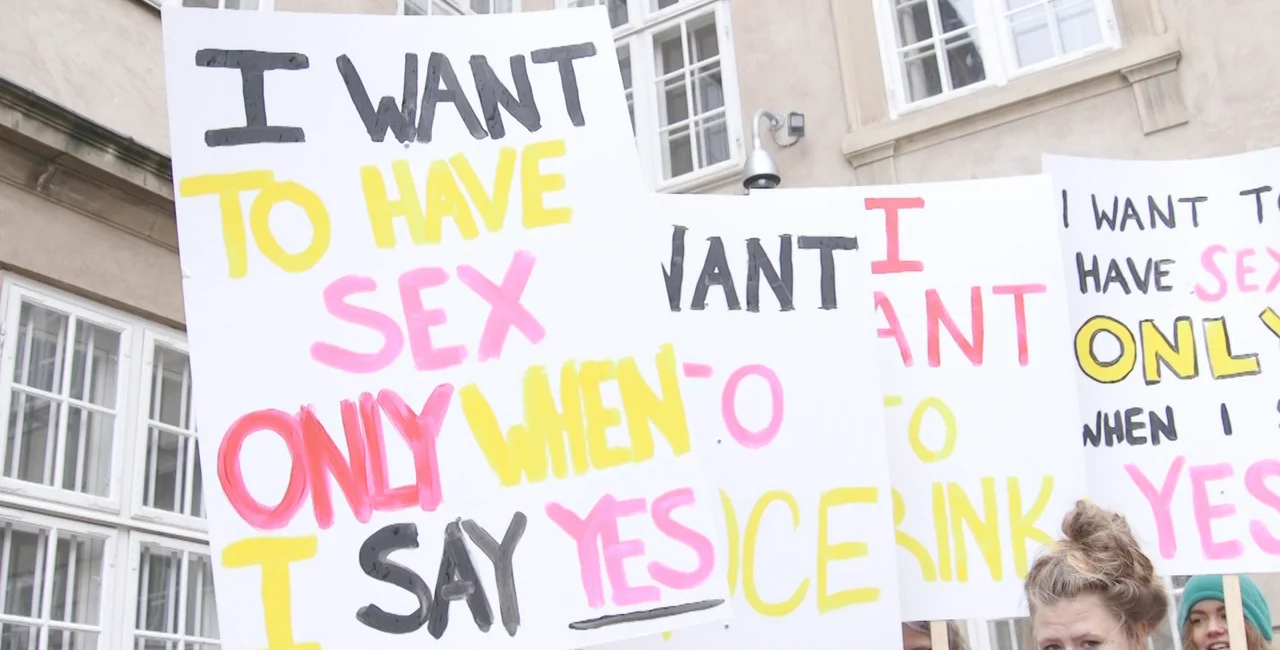A protest held near the Czech Chamber of Deputies in Prague Tuesday called for a change in the legal definition of rape. The protest's organizers, including Czech NGO Konsent and Amnesty International (AI) argue that sexual intercourse without consent should be considered rape, too.
The event in the Czech capital's Malostranské náměstí saw protesters install a bed on the square and wave banners reading 'Consent is Sexy' and 'I Do Not Play Without Consent'.
As part of the Chce to souhlas (Consent is needed) campaign, organizers say they want to draw awareness to the notion that threats of violence are not always present when a rape is committed.
Celý poslanecky klub STAN přišel na náš happening podpořit nápravu definice znásilněni. Má to smysl #chcetosouhlas https://t.co/gq97okHgFl
— johanna Nejedlova (@nejedlova) February 15, 2022
Currently, 13 European countries frame their definition of rape according to consent. Johanna Nejedlova Executive Director of Konsent said non-consensual intercourse is a problem in the Czech Republic, "One in ten women and thirty men in the Czech Republic have experienced rape. Statistics show that a vast number of people have experienced non-consensual intercourse."
An estimated 12,000 rapes are committed in the Czech Republic annually. Last year some 600 rapes were reported to the police, roughly 5 percent of all cases. The NGOs say that the prevailing murky definition of what constitutes rape leads to only those cases that involved violence being pursued by police.
Women's rights and humanitarian organizations are pushing for the new lower house sub-committee for domestic and sexual violence to address the issue. In late January, however, the committee that it would table its proposals to the Justice Ministry until autumn.
Lower house deputy head Olga Richterová (Pirates) attended the protest yesterday to show her support for the cause.
A survey conducted by AI and the Czech women's lobby some years ago revealed that almost three-fifths of Czech adults believe that in some cases, women are to be blamed for being raped. Respondents said that flirtatiousness, being drunk, or wearing provocative clothes justify rape. Other cases in which respondents said rape was justified include the victim not saying "no" clearly enough, walking alone in a dangerous place, or having had many sexual partners.
An analysis of 55 court decisions from 2016 says that a substantial portion of convicted rapists received conditional sentences, the NGO proFEM said. In most cases, the victim and the rapist knew each other. The victims were often raped by a relative or schoolmate. Lenient sentences are given if the rapist has a clear criminal record, denies the rape, and there are no visible repercussions for the victim.
Women's rights organizations emphasize the significant traumatic impact of rape. Many victims cope with such experiences for a very long time, some throughout their entire life.












 Reading time: 2 minutes
Reading time: 2 minutes 





























